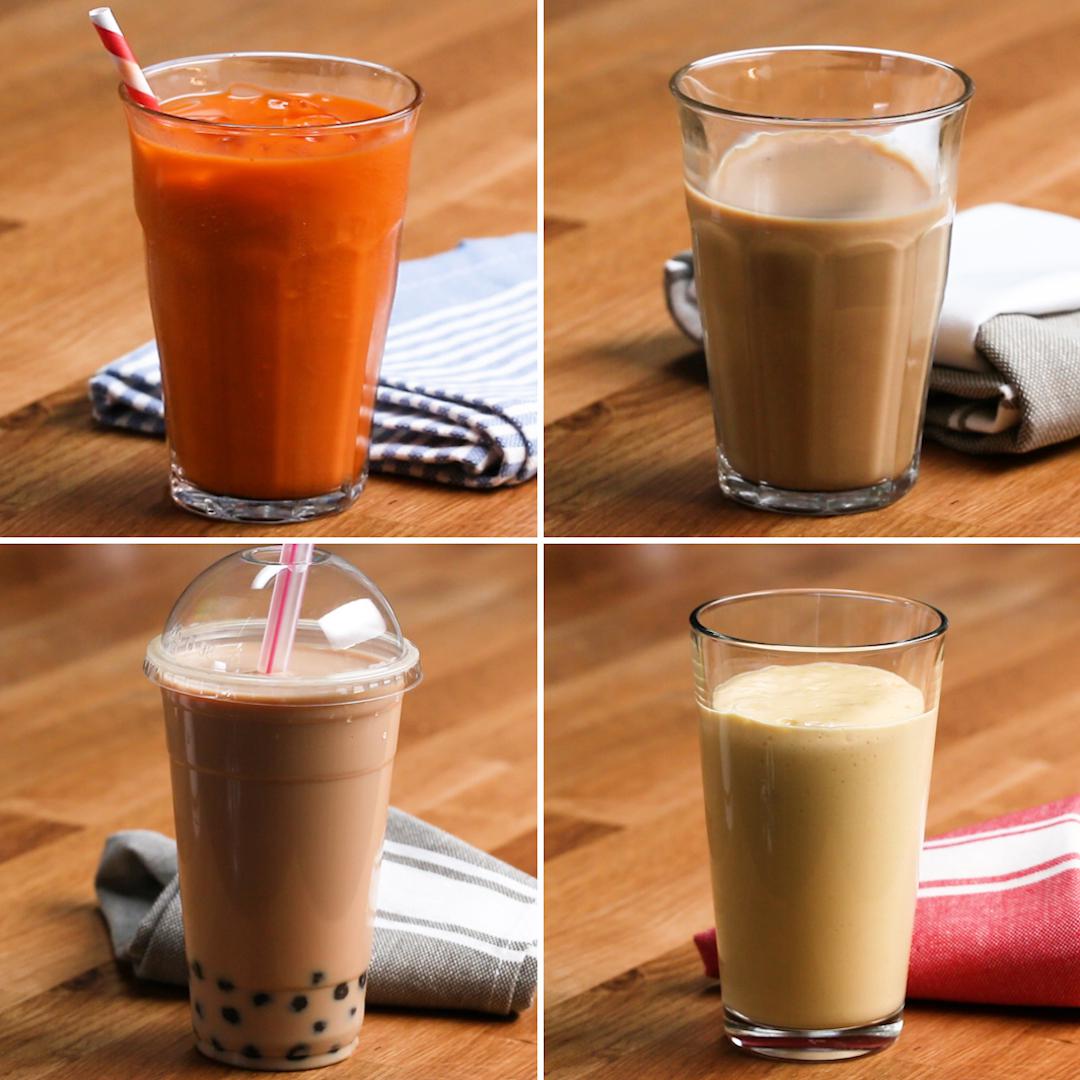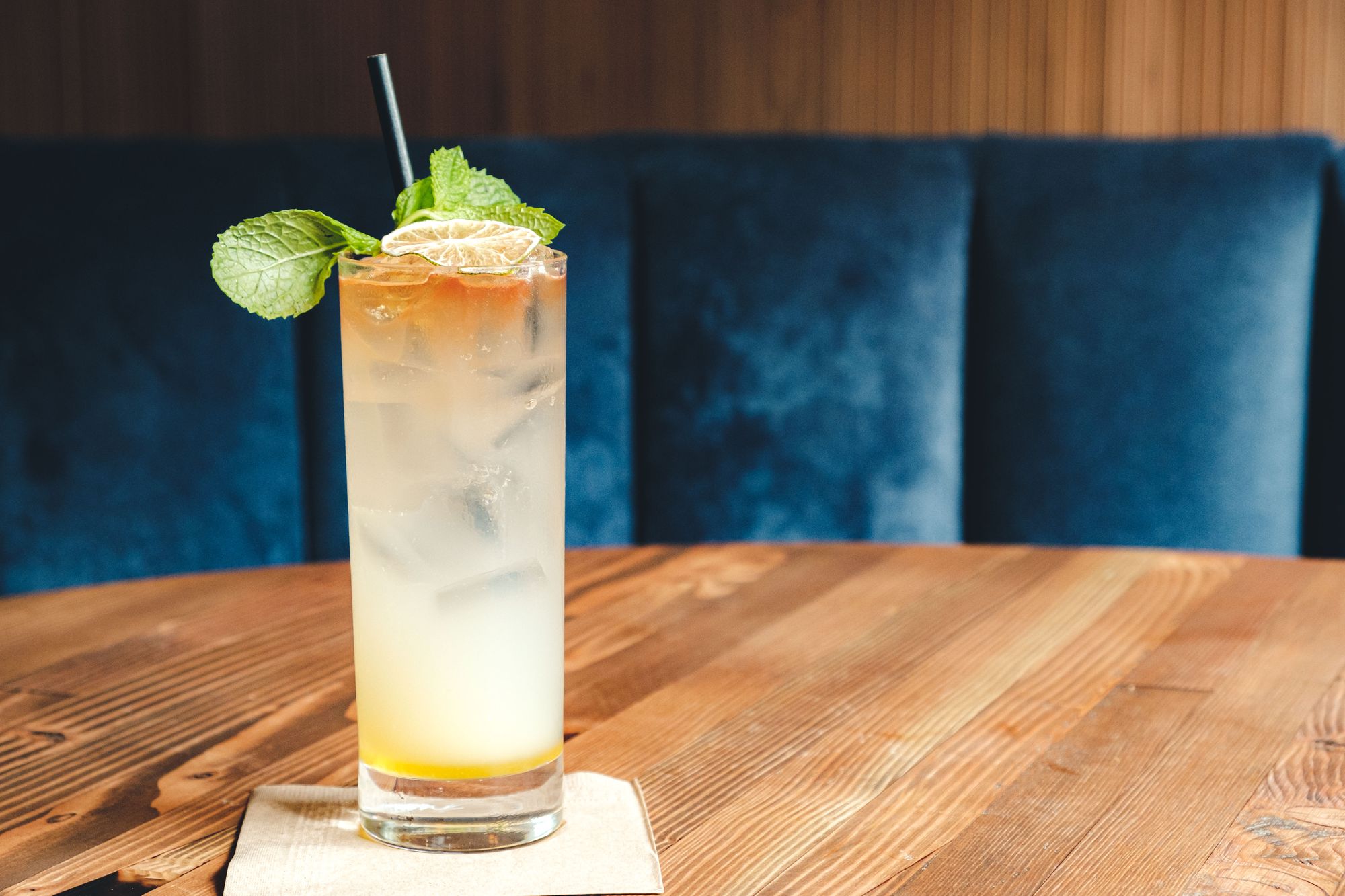In the vibrant culinary tapestry of Asia, mocktails have emerged as an alluring blend of tradition and innovation. These non-alcoholic concoctions offer a tantalizing journey through the exotic flavors of the East, showcasing the region’s rich cultural heritage and culinary prowess.
From the refreshing sweetness of Thai iced tea to the aromatic complexity of Vietnamese iced coffee, Asian mocktails captivate the palate with their diverse flavor profiles. Whether you’re looking to quench your thirst or impress your guests, these delectable beverages are sure to transport you to the heart of Asia.
Recipes

Discover a diverse range of Asian mocktail recipes that will tantalize your taste buds and evoke the vibrant flavors of the East.
From classic concoctions to contemporary creations, these mocktails offer a refreshing and sophisticated way to enjoy the social aspect of cocktails without the alcohol.
Classic Asian Mocktails
- Virgin Mojito: A refreshing Cuban classic featuring muddled mint, lime juice, sugar, and sparkling water.
- Shikanji: An Indian lemonade made with fresh lemon juice, cumin, and salt.
- Virgin Piña Colada: A tropical treat blending pineapple juice, coconut cream, and ice.
Modern Asian Mocktails
- Lychee Rose Spritzer: A delicate and floral mocktail combining lychee juice, rose syrup, and soda water.
- Matcha Ginger Fizz: A refreshing blend of matcha tea, ginger, lime, and sparkling water.
- Mango Lassi Mocktail: A creamy and tangy mocktail made with mango, yogurt, and spices.
Flavor Profiles
Asian mocktails are characterized by their distinct balance of sweet, sour, and umami flavors. This unique combination creates a harmonious and complex taste experience.Different ingredients contribute to the overall flavor profile of Asian mocktails. Sweetness is often derived from fruits such as mango, pineapple, and lychee, while sourness comes from citrus fruits like lime and yuzu.
Umami, the savory and meaty flavor, is added through ingredients like soy sauce, miso paste, and seaweed.
Sweetness
Sweetness in Asian mocktails is typically derived from natural fruit juices and syrups. Popular fruits used include mango, pineapple, lychee, and passion fruit. These fruits provide a vibrant and refreshing sweetness that balances the other flavors in the drink.
Sourness
Sourness in Asian mocktails is often achieved through the use of citrus fruits such as lime, yuzu, and calamansi. These fruits add a refreshing tartness that helps to balance the sweetness of the other ingredients.
Umami
Umami, the savory and meaty flavor, is a key component of many Asian mocktails. This flavor is often added through ingredients such as soy sauce, miso paste, and seaweed. These ingredients provide a depth of flavor that rounds out the drink and makes it more complex.
Health Benefits
Asian mocktails are not just delicious and refreshing; they also offer a range of potential health benefits. Many of these beverages are made with fresh fruits, herbs, and spices, which are packed with antioxidants and other beneficial compounds. Antioxidants help protect the body from damage caused by free radicals, which can contribute to chronic diseases such as cancer and heart disease.In
addition to their antioxidant properties, Asian mocktails can also aid in digestion. Many of these beverages contain ginger, which has been shown to help reduce nausea and vomiting. Others contain probiotics, which are beneficial bacteria that can help improve gut health.
Specific Health Concerns
Some Asian mocktails are particularly beneficial for specific health concerns. For example, mocktails made with turmeric may help reduce inflammation, while those made with green tea may help boost metabolism and improve cognitive function.
Cultural Significance
Asian mocktails hold significant cultural importance in various Asian countries, serving as integral parts of festivals, celebrations, and daily life.
In many Asian cultures, mocktails are deeply intertwined with traditional beliefs and customs. For instance, in China, the consumption of mocktails is believed to bring good luck and prosperity during the Lunar New Year. In Thailand, mocktails are often prepared and offered to guests as a symbol of hospitality and welcome.
Festivals and Celebrations
Mocktails play a prominent role in numerous Asian festivals and celebrations. During the Mid-Autumn Festival in China, mocktails made with pomegranates and lotus seeds are served as a symbol of family reunion and abundance. In India, mocktails are an essential part of Holi, the festival of colors, where they are prepared with a variety of fruits, spices, and herbs.
Daily Life
In many Asian countries, mocktails are enjoyed as a refreshing and healthy alternative to alcoholic beverages. They are often consumed during meals, as a way to cool down on a hot day, or as a social drink among friends and family.
In some cultures, mocktails are also used as a way to introduce children to the flavors and aromas of traditional Asian ingredients.
Last Point
As we delve into the world of Asian mocktails, we uncover a treasure trove of flavors, traditions, and health benefits. These non-alcoholic delights not only tantalize the taste buds but also offer a glimpse into the vibrant cultures that gave them birth.
Whether you’re a seasoned mixologist or a curious explorer, the journey of Asian mocktails promises an unforgettable culinary adventure.
FAQ Corner
What are the most common ingredients used in Asian mocktails?
Asian mocktails often feature a blend of tropical fruits, herbs, spices, and teas. Common ingredients include lemongrass, ginger, kaffir lime leaves, coconut milk, and various tropical fruits like mango, pineapple, and papaya.
How do Asian mocktails differ from Western mocktails?
Asian mocktails tend to have a more pronounced use of herbs, spices, and tropical fruits, which gives them a unique flavor profile that differs from Western mocktails. They often incorporate umami flavors and have a more balanced sweetness and acidity.
Are Asian mocktails healthy?
Many Asian mocktails contain ingredients with potential health benefits. For example, lemongrass has antioxidant properties, ginger aids digestion, and coconut milk is a good source of healthy fats. However, it’s important to note that some mocktails may contain high amounts of sugar, so moderation is key.

